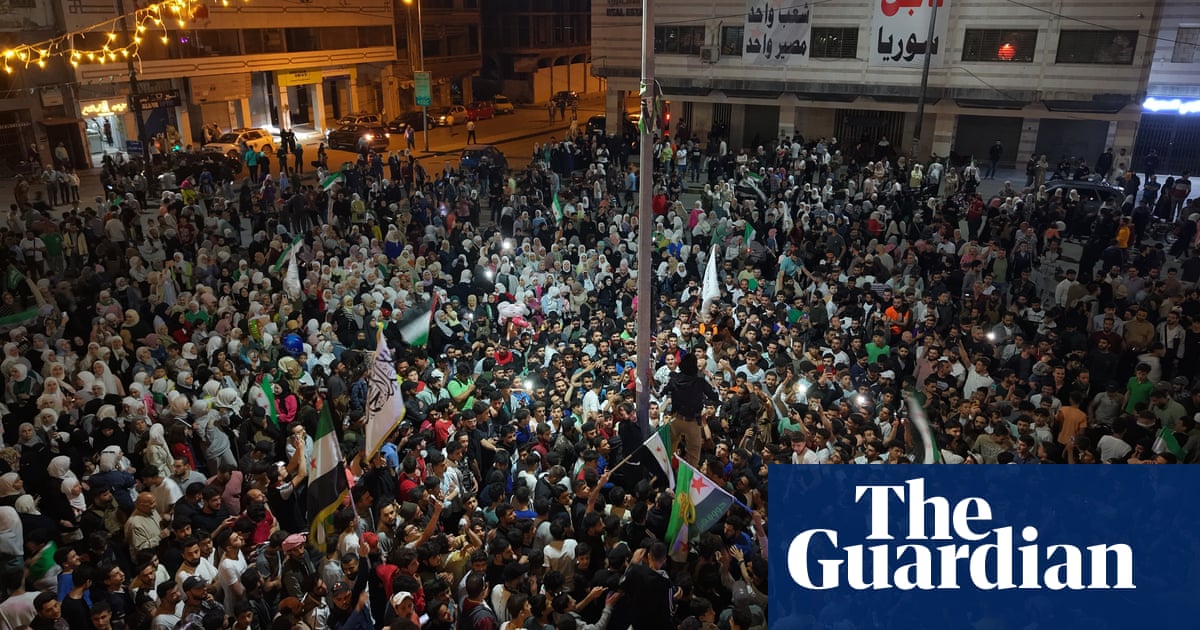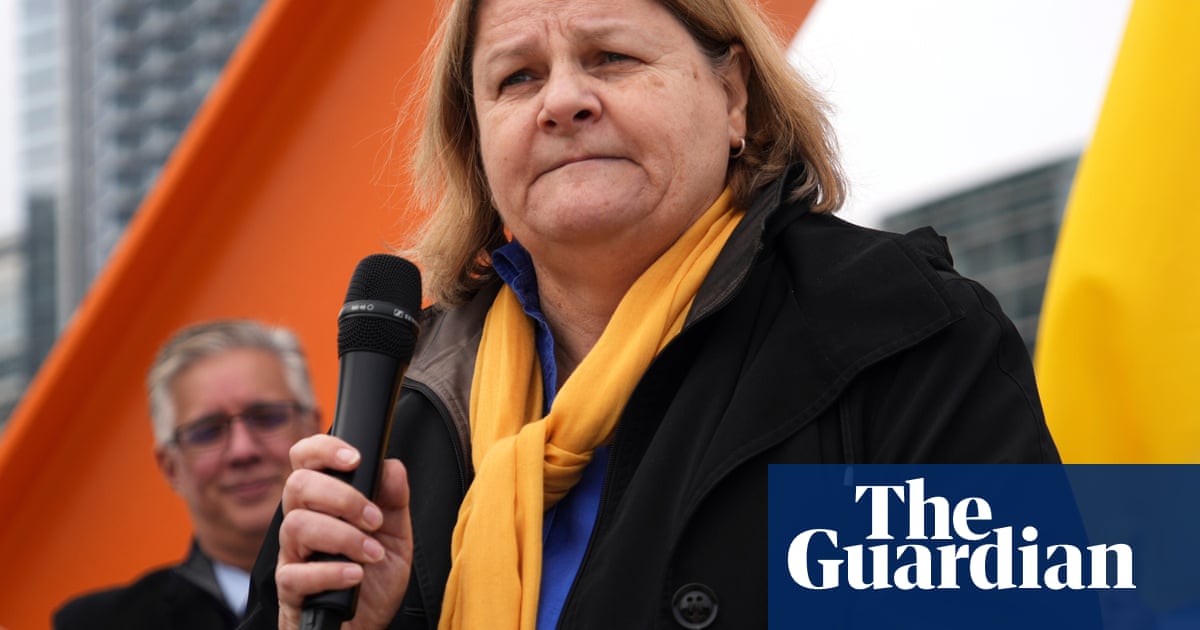The ongoing legal saga of Kilmar Ábrego García, a man wrongly deported to a notorious prison in El Salvador, has become a flashpoint as Donald Trump tests the limits of his executive power and continues with his plans for mass deportations.
On Tuesday, a federal judge sharply rebuked the Trump administration for taking no steps to secure Ábrego García’s release despite a supreme court order last week ordering the administration to facilitate his return to the US.
The administration previously conceded Ábrego García’s deportation was an “administrative error”, but it has since refused to bring him back and dug in on its contention that it should not be responsible for his repatriation.
Here’s what to know about the case.
Who is Kilmar Ábrego García?
Ábrego García, 29, is a Salvadorian immigrant who entered the US illegally around 2011 because he and his family were facing threats by local gangs.
In 2019, he was detained by police outside a Home Depot in Maryland, with several other men, and asked about a murder. He denied knowledge of a crime and repeatedly denied that he was part of a gang.
He was subsequently put in immigration proceedings, where officials argued they believed he was part of the MS-13 gang in New York based on his Chicago Bulls gear and on the word of a confidential informant.
A US immigration judge granted him protection from deportation to El Salvador because he was likely to face gang persecution. He was released and Immigration and Customs Enforcement (Ice) did not appeal the decision or try to deport him to another country.
Ábrego García was living in Maryland with his wife, a US citizen, and has had a work permit since 2019. The couple are parents to their son and her two children from a previous relationship.
Why was he deported?
Ábrego García was stopped and detained by Ice officers on 12 March and questioned about alleged gang affiliation.
He was deported on 15 March on one of three high-profile deportation flights to El Salvador. That flight also included Venezuelans whom the government accuses of being gang members and assumed special powers to expel without a hearing.
Ábrego García is currently being detained in the Center for Terrorism Confinement (Cecot), a controversial mega-prison in Tecoluca, El Salvador, known for its harsh conditions.
The US is currently paying El Salvador $6m to house people who it alleges are members of the Tren de Aragua gang for a year.
His wife, Jennifer Vásquez Sura, said she has not spoken to him since he was flown to El Salvador and imprisoned.
What have the courts said?
The US district judge Paula Xinis directed the Trump administration on 4 April to “facilitate and effectuate” the return of Ábrego García, in response to a lawsuit filed by the man and his family challenging the legality of his deportation.
The supreme court unanimously upheld the directive on 10 April. In an unsigned decision, the court said the judge’s order “properly requires the government to ‘facilitate’ Ábrego García’s release from custody in El Salvador and to ensure that his case is handled as it would have been had he not been improperly sent to El Salvador”.
However, the supreme court said the additional requirement to “effectuate” his return was unclear and may exceed the judge’s authority. It directed Xinis to clarify the directive “with due regard for the deference owed to the executive branch in the conduct of foreign affairs”.
Xinis admonished the government in a hearing on 11 April, saying it was “extremely troubling” that the administration had failed to comply with a court order to provide details on Ábrego García’s whereabouts and status.
On Saturday, the Trump administration confirmed Ábrego García was alive and confined in El Salvador’s mega-prison, Cecot.
Xinis once again, on Tuesday, criticized justice department officials for not complying with the supreme court’s order, saying “to date, nothing has been done”. She gave the government two weeks to produce details of their efforts to return Ábrego García to US soil.
What has the US government said?
The White House has cast Ábrego García as an MS-13 gang member and asserted that US courts lack jurisdiction over the matter because the Salvadoran national is no longer in the US.
Earlier this month, the Trump administration acknowledged that Ábrego García was deported as a result of an “administrative error”. An immigration judge had previously prohibited the federal government from deporting him to El Salvador in 2019 regardless of whether he was a member of the MS-13 gang.
The justice department has said it interpreted the court’s order to “facilitate” Ábrego García’s return as only requiring them to “remove any domestic obstacles that would otherwise impede the alien’s ability to return here”.
The US attorney general, Pam Bondi, has characterized the court’s order as only requiring the administration to provide transportation to Ábrego García if released by El Salvador.
“That’s up to El Salvador if they want to return him. That’s up to them,” Bondi said. “The supreme court ruled that if El Salvador wants to return him, we would ‘facilitate’ it, meaning provide a plane.”
Justice department lawyers have argued that asking El Salvador to return Ábrego García should be considered “foreign relations” and therefore outside the scope of the courts.
But the administration’s argument that it lacks the power to return Ábrego García into US custody is undercut by the US paying El Salvador to detain deportees it sends to Cecot prison.
What have his lawyers said?
Ábrego García’s attorneys have said there is no evidence he was in MS-13. The allegation was based on a confidential informant’s claim in 2019 that Ábrego Garcia was a member of a chapter in New York, where he has never lived.
Ábrego García had never been charged with or convicted of any crime, according to his lawyers. He had a permit from the Department of Homeland Security to legally work in the US, his attorneys said.
The Maryland senator Chris Van Hollen, a Democrat, traveled to El Salvador on Wednesday where he hopes to visit Ábrego García. He said the government of El Salvador had not responded to his request to visit Cecot.
Van Hollen told the Guardian: “This is a Maryland man. His family’s in Maryland, and he’s been caught up in this absolutely outrageous situation where the Trump administration admitted in court that he was erroneously abducted from the United States and placed in this notorious prison in El Salvador in violation of all his due process rights.”
What has El Salvador said?
Nayib Bukele, the president of El Salvador, has said that he would not order the return of Ábrego García because that would be tantamount to “smuggling” him into the US.
During a meeting with Donald Trump in the Oval Office on Monday, Bukele was asked whether he would help to return Ábrego García. “The question is preposterous,” he replied.
“How can I smuggle a terrorist into the United States? I’m not going to do it.” He added that he would not release Ábrego García into El Salvador either. “I’m not very fond of releasing terrorists into the country.”

 German (DE)
German (DE)  English (US)
English (US)  Spanish (ES)
Spanish (ES)  French (FR)
French (FR)  Hindi (IN)
Hindi (IN)  Italian (IT)
Italian (IT)  Russian (RU)
Russian (RU)  3 weeks ago
3 weeks ago
























Comments